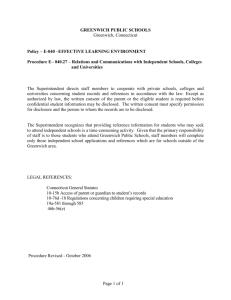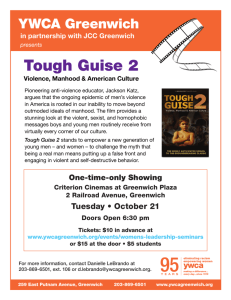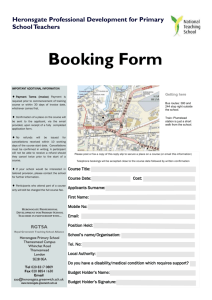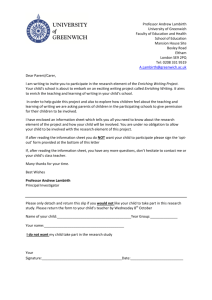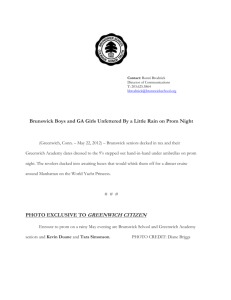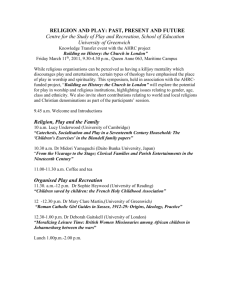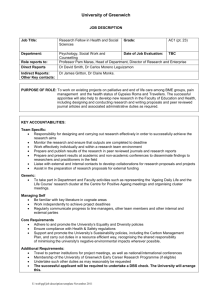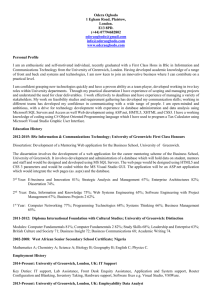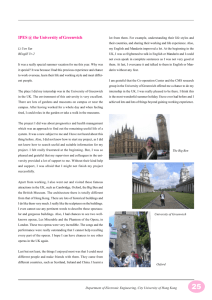Historical Society Receives Grant for Restoration Work on Bush
advertisement
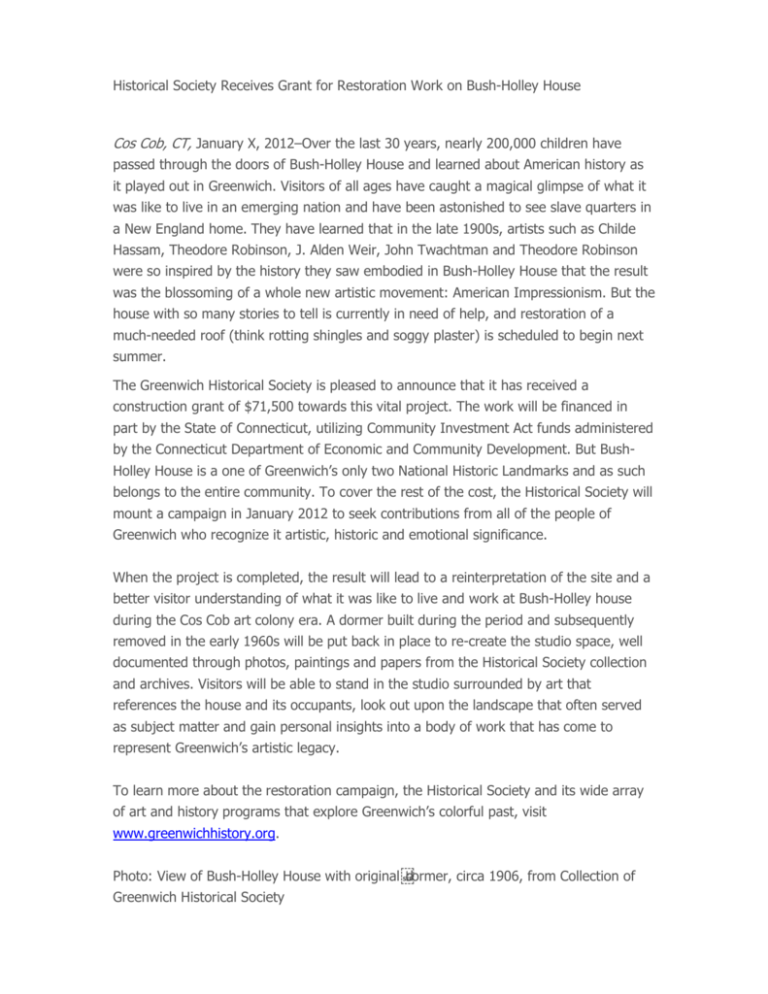
Historical Society Receives Grant for Restoration Work on Bush-Holley House Cos Cob, CT, January X, 2012–Over the last 30 years, nearly 200,000 children have passed through the doors of Bush-Holley House and learned about American history as it played out in Greenwich. Visitors of all ages have caught a magical glimpse of what it was like to live in an emerging nation and have been astonished to see slave quarters in a New England home. They have learned that in the late 1900s, artists such as Childe Hassam, Theodore Robinson, J. Alden Weir, John Twachtman and Theodore Robinson were so inspired by the history they saw embodied in Bush-Holley House that the result was the blossoming of a whole new artistic movement: American Impressionism. But the house with so many stories to tell is currently in need of help, and restoration of a much-needed roof (think rotting shingles and soggy plaster) is scheduled to begin next summer. The Greenwich Historical Society is pleased to announce that it has received a construction grant of $71,500 towards this vital project. The work will be financed in part by the State of Connecticut, utilizing Community Investment Act funds administered by the Connecticut Department of Economic and Community Development. But BushHolley House is a one of Greenwich’s only two National Historic Landmarks and as such belongs to the entire community. To cover the rest of the cost, the Historical Society will mount a campaign in January 2012 to seek contributions from all of the people of Greenwich who recognize it artistic, historic and emotional significance. When the project is completed, the result will lead to a reinterpretation of the site and a better visitor understanding of what it was like to live and work at Bush-Holley house during the Cos Cob art colony era. A dormer built during the period and subsequently removed in the early 1960s will be put back in place to re-create the studio space, well documented through photos, paintings and papers from the Historical Society collection and archives. Visitors will be able to stand in the studio surrounded by art that references the house and its occupants, look out upon the landscape that often served as subject matter and gain personal insights into a body of work that has come to represent Greenwich’s artistic legacy. To learn more about the restoration campaign, the Historical Society and its wide array of art and history programs that explore Greenwich’s colorful past, visit www.greenwichhistory.org. Photo: View of Bush-Holley House with original dormer, circa 1906, from Collection of Greenwich Historical Society

